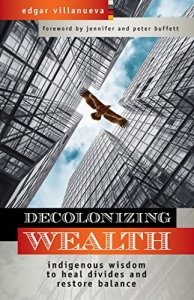As the end of 2019 approaches, we share some of the books we’ve been reading at The Marshall Institute that have sparked conversation and proved provocative. Each have a connection in some way with the mission of the Institute.
Stephan Chambers, Institute Director:
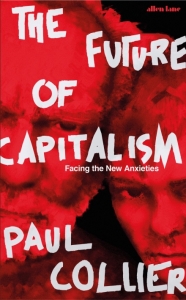 Paul Collier, The Future of Capitalism: Facing the New Anxieties
Paul Collier, The Future of Capitalism: Facing the New Anxieties
Our conversation with Paul Collier and The Philanthropy Workshop was one of the highlights of this year. It’s a very important book and one proposing resolutely pragmatic solutions.
 Colin Mayer, Prosperity
Colin Mayer, Prosperity
Twice this year we’ve engaged publicly with Colin Mayer’s Prosperity. First at an LSE Department of Economics seminar and then again ‘in conversation’ at the 2019 St Gallen Symposium. Both times this very well written and deceptively radical book has taken people by surprise in the reasonableness of its disruptive proposals.
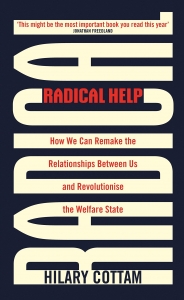 Hilary Cottam, Radical Help: How we can remake the relationships between us and revolutionise the welfare state
Hilary Cottam, Radical Help: How we can remake the relationships between us and revolutionise the welfare state
Hilary Cottam was a visitor at the Marshall Institute in 2018. Her Radical Help has been widely noticed as a call to arms for a new welfare state.
Anand Giridharadas, Winners Take All: The Elite Charade of Chang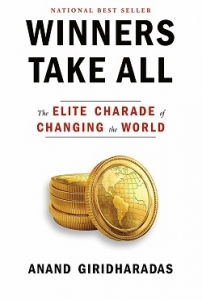 ing the World
ing the World
Biting that hand that has fed him, Anand Giridharadas’ book questions in serious and uncompromising ways the codependency of philanthropy and inequality and raises a host of important questions about the legitimacy of those who seek to improve the state of the world. A significant hit with our students and an unusual cross-over book central to the Netflix ‘Why Billionaires Won’t Save Us’ film.
Edgar Villanueva, Decolonizing Wealth: Indigenous Wisdom to Heal Divides and Restore Balance
Edgar Villanueva’s book asks questions that have long been unasked. His talk at the Skoll World Forum this year was one of its highlights. He wonders what the world would look like if money were used to heal very specific historical injustices. Part of a growing clamour and an interesting, accessible book.
Jonathan Roberts, Teaching Director:
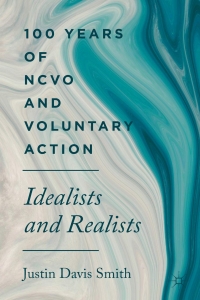 Justin Davis Smith, 100 Years of NCVO and Voluntary Action: Idealists and Realists
Justin Davis Smith, 100 Years of NCVO and Voluntary Action: Idealists and Realists
A history of the National Council of Voluntary Organisations on its 100th birthday. This might seem a niche choice – but the story of the NCVO is at once a social history, a story of the difficult and complex relationship between government and the voluntary sector, and also a tale of philosophies of voluntary action (hence the subtitle).
 Mariana Mazzucato, The Value of Everything: Making and Taking in the Global Economy
Mariana Mazzucato, The Value of Everything: Making and Taking in the Global Economy
A timely deconstruction of the standard narrative that value is automatically and solely created by the private sector, guiding the reader through the development of economic thought on the nature of value and exploring topics as diverse as the 2007-2008 financial crisis and the outsourcing of public services.
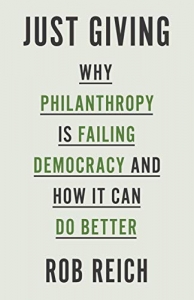 Rob Reich, Just Giving: Why Philanthropy is Failing Democracy and How It Can Do Better
Rob Reich, Just Giving: Why Philanthropy is Failing Democracy and How It Can Do Better
An elegant critique of philanthropy as enacted in the modern state (and especially in the US) that takes readers on a journey through history and political philosophy. While critical, the conclusion is also constructive, identifying a powerful function for different kinds of philanthropic action in supporting decentralisation of power and innovation in social policy. WATCH INTERVIEW
Julian Le Grand, Professor of Social Policy:
 Sam Friedman, The Class Ceiling: Why it Pays to be Privileged
Sam Friedman, The Class Ceiling: Why it Pays to be Privileged
How “the following wind” of privilege propels those born into the higher classes yet higher.
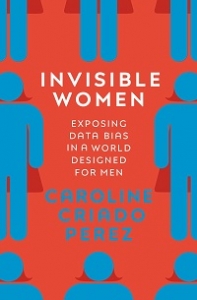 Caroline Criado Perez, Invisible Women: Exposing Data Bias in a World Designed for Men
Caroline Criado Perez, Invisible Women: Exposing Data Bias in a World Designed for Men
An astonishing, brilliantly written exposé of how many apparently gender-neutral activities, from snow clearing to the design of crash dummies, piano keyboards and even randomised controlled trials, are actually male-oriented – to the detriment of women’s health and well-being.
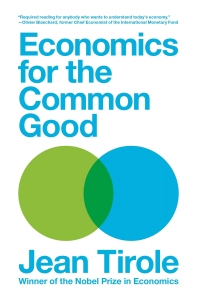 Jean Tirole, Economics for the Common Good
Jean Tirole, Economics for the Common Good
A tour de force from a Nobel-prize winning economist. Shows how economics can be used to illuminate an extraordinary range of topics from the financial crash to the theory and practice of altruism. We interviewed Jean at the Marshall Institute last year. WATCH INTERVIEW


